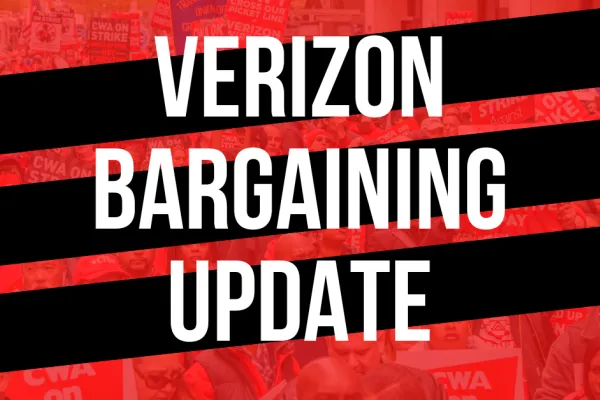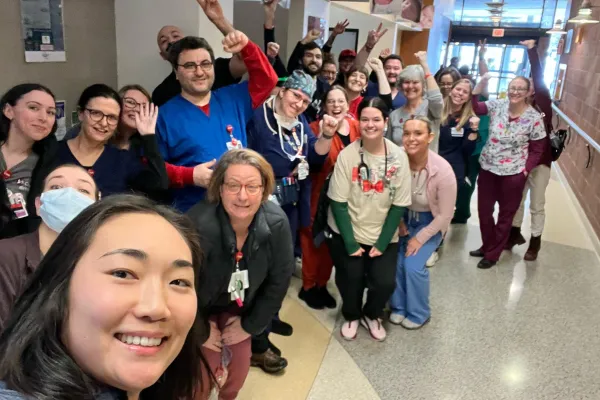News
CWA Releases Summary of Studies Challenging Health Tax
CWA released yesterday summaries of 18 studies, reports and analyses challenging the tax on high-cost health plans included in the Senate's health reform bill. The reports come from medical journals, from benefits consultants who work for employers, and from health policy think tanks.
"These numerous reports make clear that a tax on health care plans is the opposite of reform - it will hit middle-class families and working Americans hard," said CWA President Larry Cohen. "The health plan excise tax will not let families keep the good health plans they have now."
The reports show that key assumptions behind the tax are unsupported:
- The tax is described as aimed at "Cadillac" plans with lavish benefits. The studies show, however, that many plans with high premiums have normal benefits. The premiums are high because the plans cover many older or female workers (groups with higher medical claims) or because they cover workers in areas where medical costs are high. Projections show the Cadillac tax wouldn't just hit investment bankers - it would impact tens of millions of middle-class Americans.
- Supporters say because some of us have "too much" health insurance, having employers cut benefits would hold down medical costs. The assumption is that people are using medical services they don't need because their insurance allows them to pay little or nothing. First of all, most of us (even those with high-cost plans) are still facing co-payments and deductibles which make us think before we spend. And the studies show that decreasing benefits - meaning more out-of-pocket costs for patients - decreases the use of necessary as well as unnecessary care. When a patient with a chronic condition, such as diabetes, "saves money" by not taking medication to control the condition, hospitalization and emergency room costs go up, so the savings can disappear.
- Studies show most health costs are for a relatively small number of patients with serious acute conditions (such as cancer) or chronic problems which require treatment for years (such as asthma). Higher out-of-pocket costs would likely do little to impact such big-ticket medical spending. And the out-of-pocket costs did have an impact, it would mean that the sickest people are skipping needed care.
- Supporters of the Senate health reform bill say it will let people keep the insurance plans they have. But surveys of employers show most plan to cut benefits to avoid the tax.
- While employers would cut benefits to avoid the tax, supporters of the tax say the money the employers save would be passed along to the workers as raises. Surveys of employers, however, show they don't plan to do that; workers would be facing higher out-of-pocket costs when they need care, but without the raises that would help them pay for it.
Update on Bargaining with Verizon in 2026
From the Desk of the Vice President of CWA District 1
News
From the Desk of the Vice President of CWA District 1
From the Desk of the Vice President of CWA District 1
Nurses at Cayuga Medical Center Fight for Their Union
News
Nurses at Cayuga Medical Center Fight for Their Union
Nurses at Cayuga Medical Center Fight for Their Union

